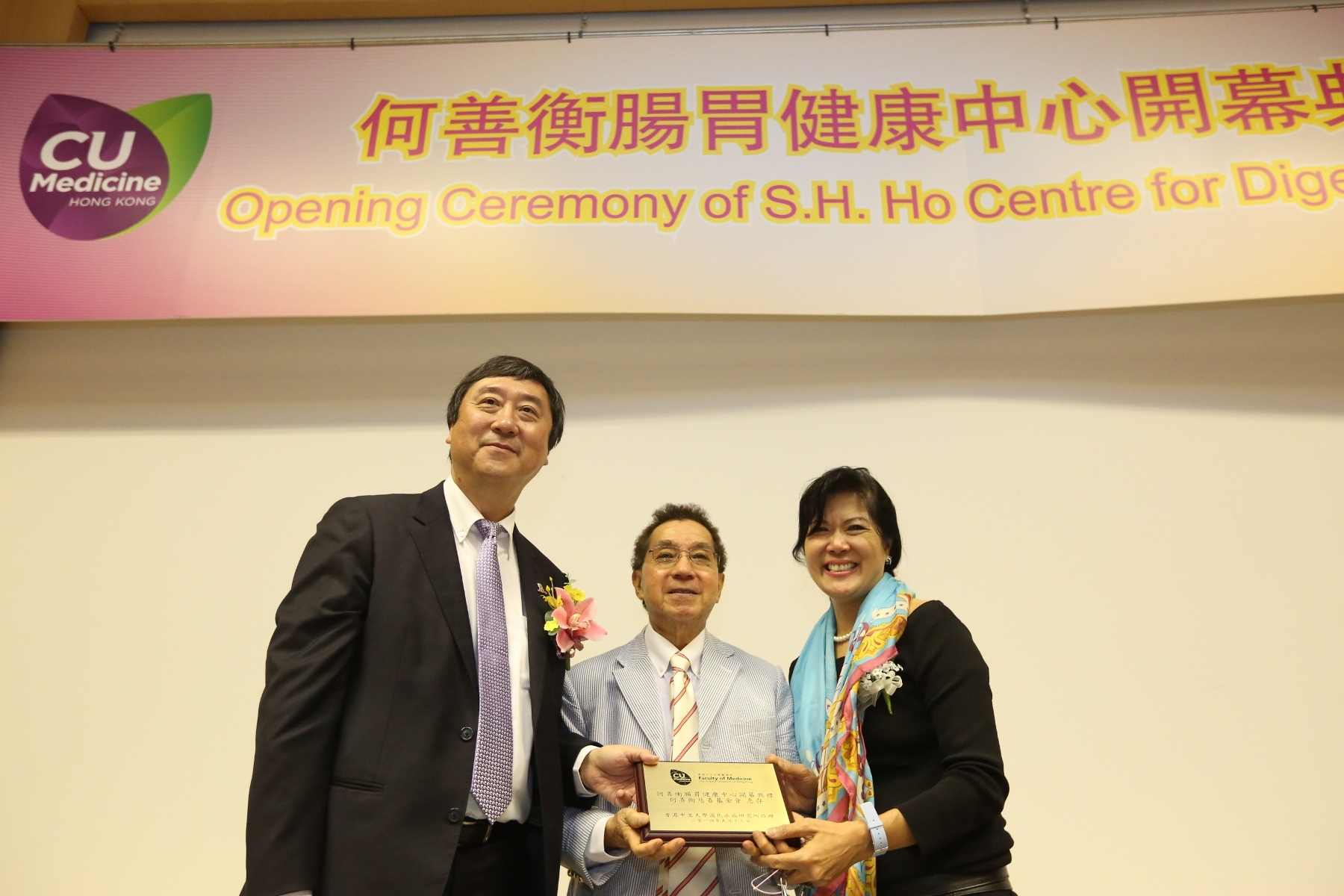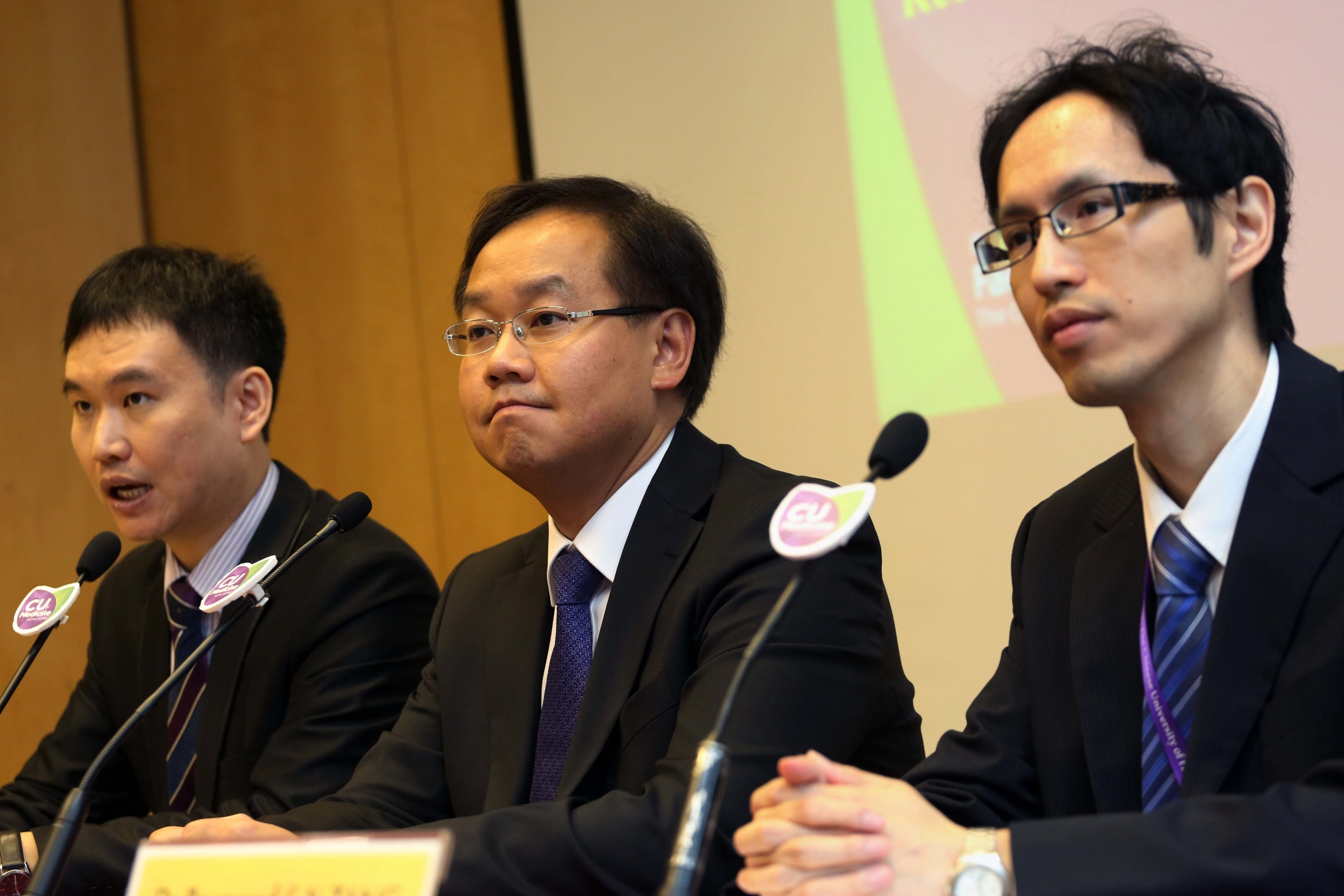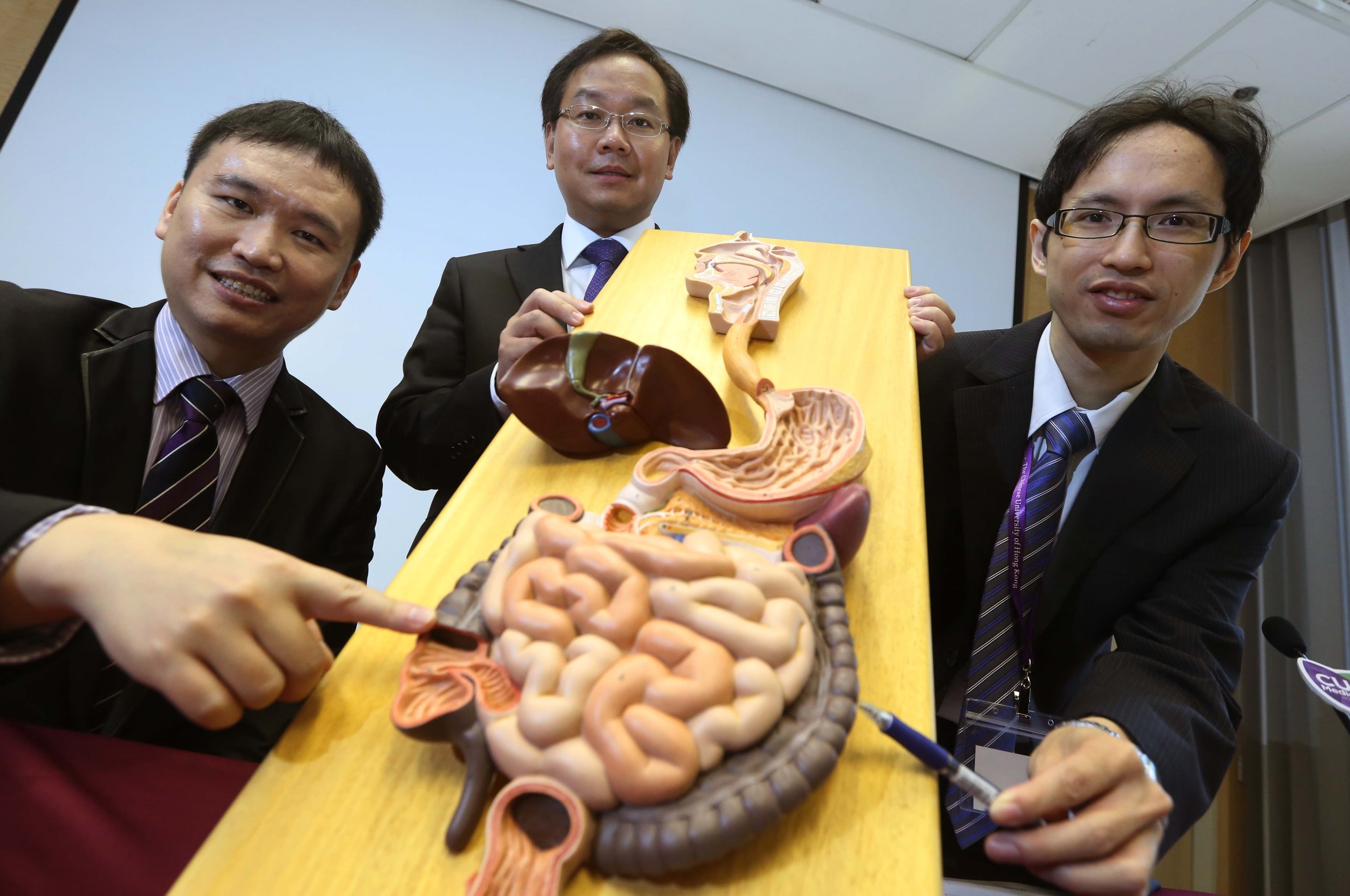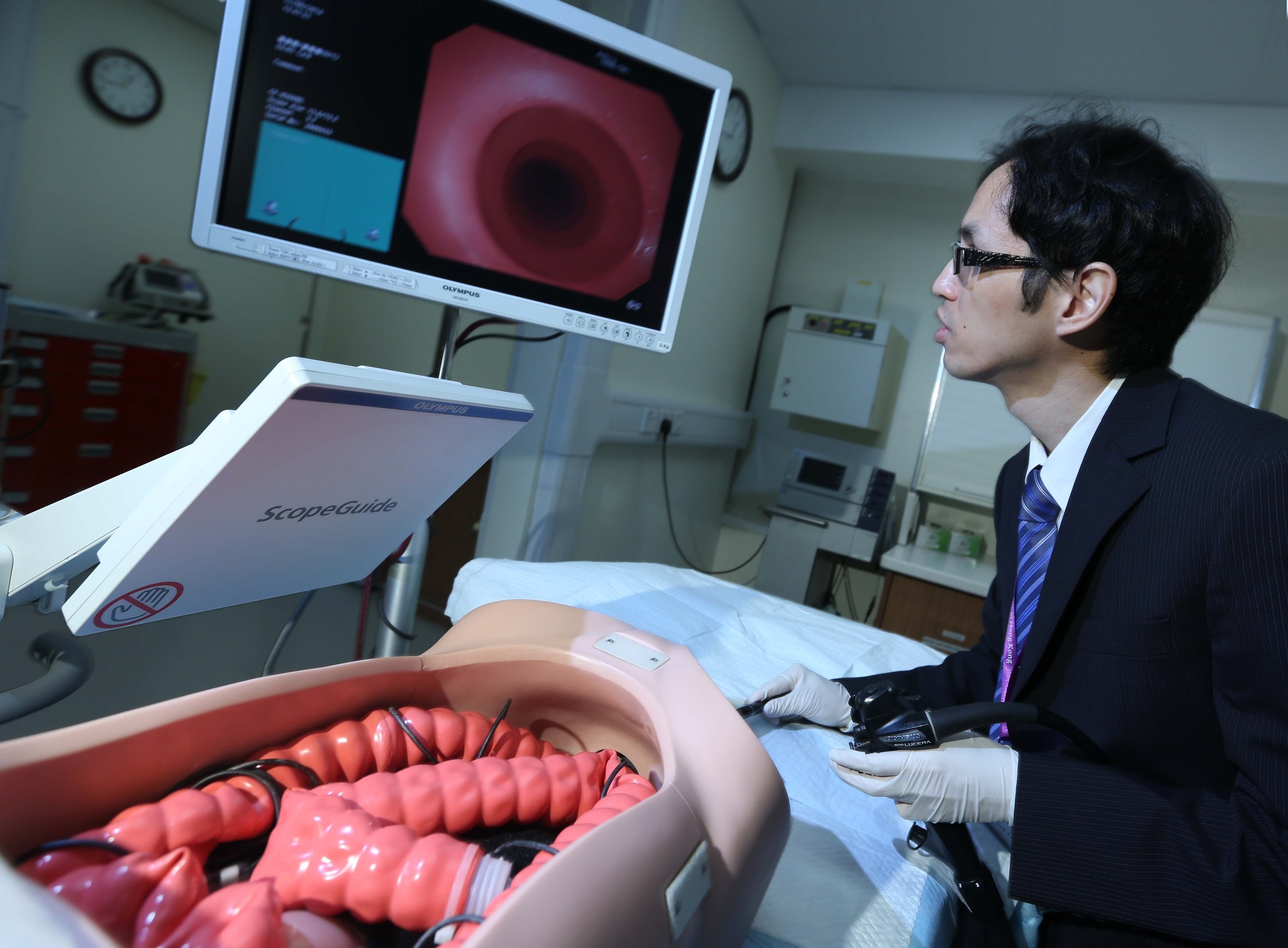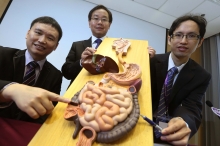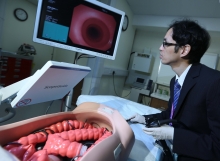CUHK
News Centre
CUHK Welcomes the “Pilot Bowel Cancer Screening Programme” and Recommends Subsidizing Residents Aged 61-70 First
Recently, bowel cancer has become the most common cancer and the second leading cancer killer in Hong Kong, with about 4,450 new cases and causing 1,900 deaths per year. The Department of Health has started the preparatory work of a pilot programme to subsidize bowel cancer screening for higher risk groups, and is now working out the age groups to be the covered by the programme and operation details. The Chinese University of Hong Kong (CUHK) welcomes the pilot programme, and recommends subsidizing residents aged 61-70 first based on the findings by the CUHK Jockey Club Bowel Cancer Education Centre.
Supported by the Hong Kong Jockey Club Charity Trust, the CUHK Jockey Club Bowel Cancer Education Centre (the Centre) has launched a territory-wide bowel cancer screening programme in May 2008. Until December 2012, a total of 10,732 Hong Kong residents have undergone screening. It was found that more than half (54.6%) chose faecal occult blood test for screening. There was significantly more subjects aged 61-70 years chose faecal tests (75.3%) than those aged 50-60 years (54.0%). The return rate of faecal test, rate of successful faecal collection, and colonoscopy attendance rate were similar across age groups.
Worth noting that participants aged 61-70 years perceived more financial difficulties and poorer accessibility to screening services, yet they had fewer misperceptions and psychological barriers of screening. The detection rate of advanced neoplasia and cancer was much higher in the age group 65-70 years (11.9%) and 60-64 years (6.5%) than younger age groups (3.8% to 5.5%). The costs per life year saved for subjects aged 66-70 years (HK$69,120) and 61-65 (HK$310,636) were significantly lower than those aged 50-60 years (HK$726,196-1,229,828).
CUHK will fully support the HK-wide ‘Pilot Bowel Cancer Screening Programme’ subsidized by the Government, and recommend subsidizing bowel cancer screening to residents aged above 60 years as a pilot is a good start of the Government policy. It is more likely for this age group to uptake screening by faecal test, as they have fewer psychological barriers. At the same time, it is more cost effective for this age group to have bowel cancer screening.
CUHK is now working on several initiatives to provide possible solutions for the society on prevention of bowel cancer and promotion of bowel screening, including priority targeted screening for high-risk people, formulating sustainable financing model for screening and intervention, and enhancing the role of primary care doctors, especially family physicians and nurses, in bowel cancer screening.
About CUHK S.H. Ho Centre for Digestive Health
To further reduce the health threats due to bowel cancer, the newly established S. H. Ho Centre for Digestive Health is established by the generous donation of 17 million from the S.H. Ho Foundation. This centre is equipped with State-of-the-Art medical equipment and aimed to provide high quality gastrointestinal exam services and trainings to health care professionals.
About CUHK Jockey Club Bowel Cancer Education Centre
In May 2008, The Institute of Digestive Disease at CUHK was generously funded with HK$16 million by The Hong Kong Jockey Club Charities Trust to set up the CUHK Jockey Club Bowel Cancer Education Centre. In 2013, an additional HK$16 million were donated to launch another phase of a 5-year bowel cancer education and screening programme.
CUHK S.H. Ho Centre for Digestive Health is officially established and aims to provide high quality gastrointestinal examination services and trainings to healthcare professionals.
(Left) Prof. Joseph J.Y. Sung, Vice-Chancellor and President of CUHK, presents gift to Dr Tsz-leung Ho, Governor, The S.H. Ho Foundation Limited (central) and Mrs Ho to thank for the generous donation from the S.H. Ho Foundation Limited to the newly established S. H. Ho Centre for Digestive Health at the opening ceremony.
(From Left) Prof Martin C.S. Wong , Director, CUHK Jockey Club Bowel Cancer Education Centre , Prof Justin C.Y. Wu Director, S.H. Ho Centre for Digestive Health and Dr Raymond S.Y. Tang , Associate Director (Clinical), S.H. Ho Centre for Digestive Health jointly announce the research results on Bowel Cancer and recommend subsidizing residents aged 61-70 first in the “Pilot Bowel Cancer Screening Programme”.
Bowel cancer has become the most common cancer and the second leading cancer killer in Hong Kong, with about 4,450 new cases and causing 1,900 deaths each year.



